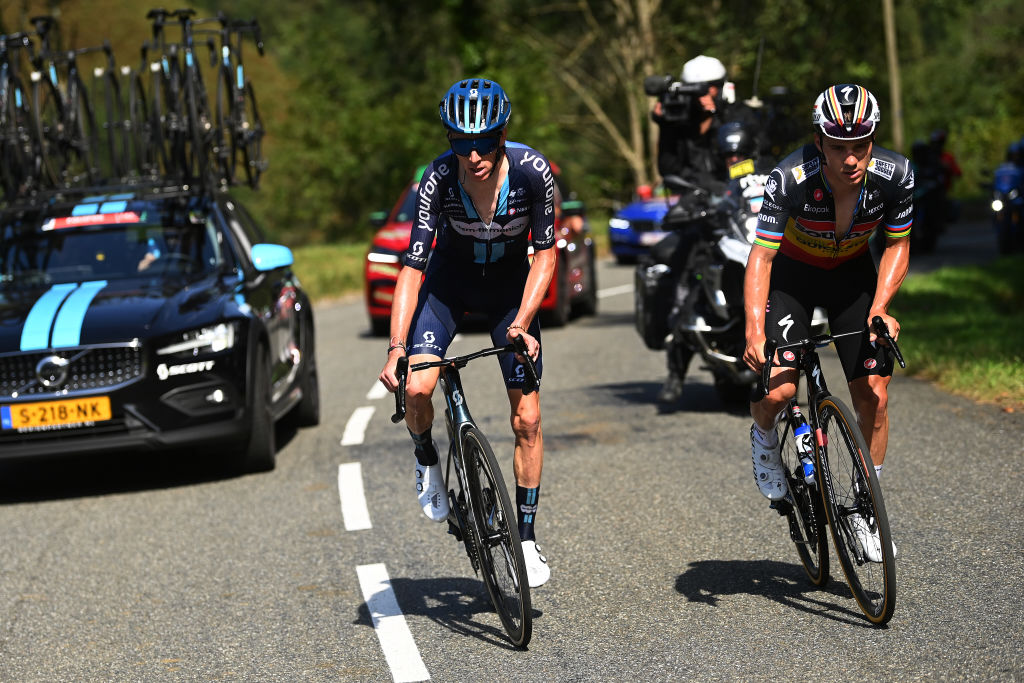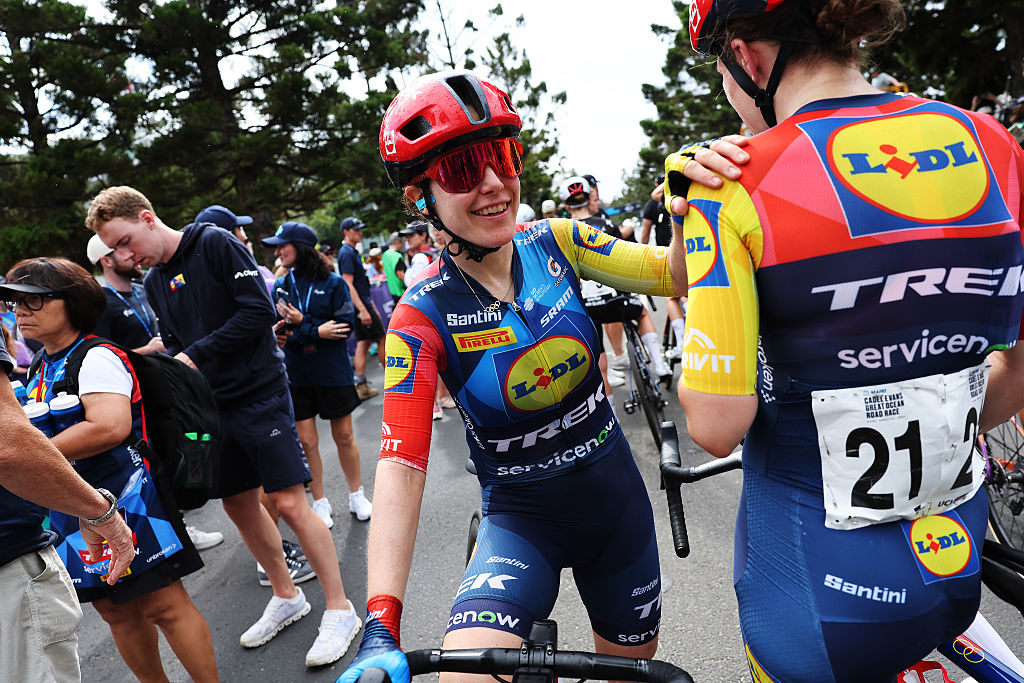Romain Bardet: I knew Remco Evenepoel wanted to win this Vuelta stage like Eddy Merckx
'Every time I came out of a corner, I needed to sprint just to stay with him' says Frenchman

The latest race content, interviews, features, reviews and expert buying guides, direct to your inbox!
You are now subscribed
Your newsletter sign-up was successful
Sitting exhausted on a pile of team kit bags next to a barrier a few hundred metres after the finish of stage 14 of the Vuelta a España, Romain Bardet (Team dsm-firmenich) took more than a few minutes to regain his composure after a mammoth breakaway with Remco Evenepoel (Soudal-QuickStep).
Dropped by Evenepoel with a steady but not sharp acceleration some four kilometres from the finish line at Bonaigua-Larra, Bardet had no chance of regaining contact, hellbent as Evenepoel was on bouncing back as high as possible from his GC debacle on Saturday.
So when the 32-year-old French climbing star finally summed up enough strength to discuss his defeat, it was to insist there was no disgrace in losing to an opponent of the calibre of Evenepoel on a stage that, given there was so much at stake in it for the Belgian, seemed almost fated to end in his rival’s grasp.
Bardet’s ability to see the bigger picture was clear from the moment he began talking to reporters, insisting that even if things had gone awry for him so close to the finish, he had, he said, “had a great day all the same. It’s not every day that you race off the front of a Grand Tour in the company of a legend.”
“I was going really well today, and I raced the race I wanted to do. But I know Remco, and I knew he didn’t just want to win the stage; he wanted to win it à la Merckx. I knew he was going to try to make a long-distance move," Bardet said.
Bardet said that despite the close collaboration between the two, it was clear who was the strongest.
“It was mad. To be honest, every time I came out of a corner, I needed to sprint just to stay with him," Bardet said.
The latest race content, interviews, features, reviews and expert buying guides, direct to your inbox!
“Now that we’ve all got super fast bikes, he’s the only guy left in the peloton who’s so aero that when he’s ahead of me on a descent, I’ve basically got no choice but to follow on his wheel.”
On the flat, Bardet recounted, it was a similar story. Remco’s natural power was such that whenever Bardet moved to the front – and the two collaborated for over 90 kilometres and across two major climbs – he had to slow down.
“It’s only now that I get why he can do these solo attacks 100 kilometres from the finish. It’s amazing.”
When the end of their two-up partnership for a day beckoned, halfway up the Bonaigua, Bardet said, it was clear that Evenepoel was on his way to victory. The two had agreed that they would work together, but there came a point where Evenepoel’s superiority left Bardet standing.
“By the end, I was cramping up because Remco’s pace was so high,” he recounted. “I lacked maybe 5% or 6% to be able to stay with him. He was the strongest; I was at my upper limit, so I can’t have any regrets.”
Alasdair Fotheringham has been reporting on cycling since 1991. He has covered every Tour de France since 1992 bar one, as well as numerous other bike races of all shapes and sizes, ranging from the Olympic Games in 2008 to the now sadly defunct Subida a Urkiola hill climb in Spain. As well as working for Cyclingnews, he has also written for The Independent, The Guardian, ProCycling, The Express and Reuters.

